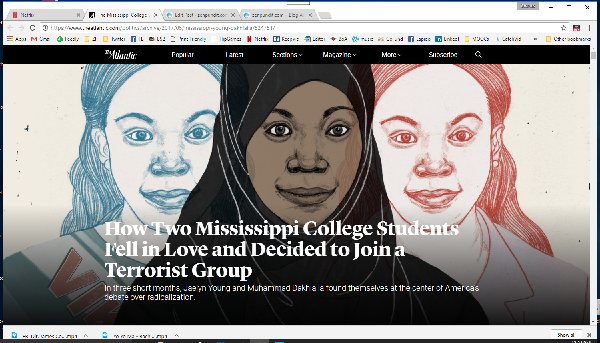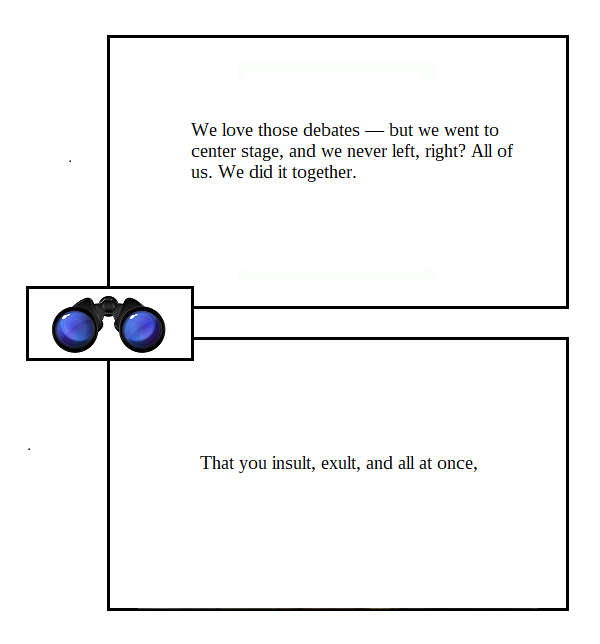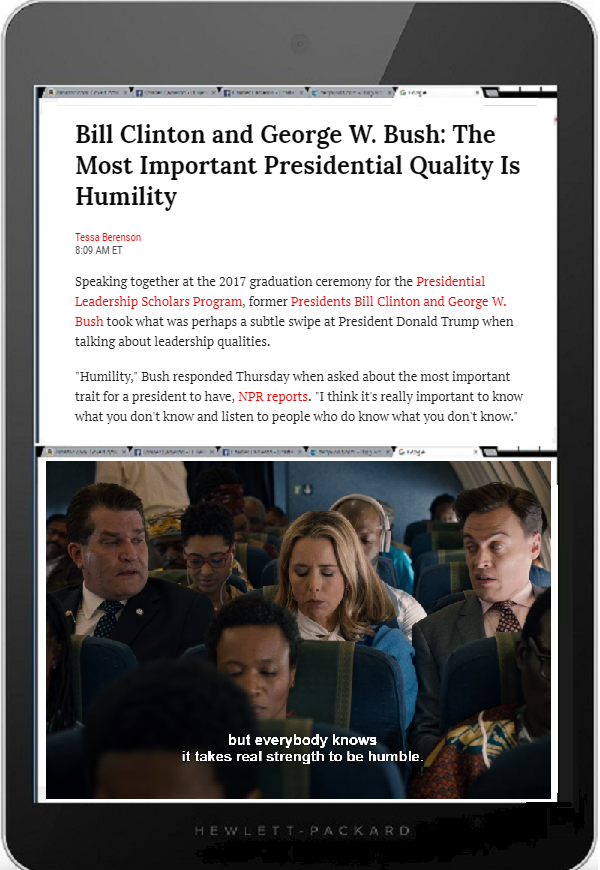[ by Charles Cameron — the poor FBI gets tangled, as does President Trump with his drug of choice ]
.

**
As if in answer to the question “Quis custodiet ipsos custodes?” — itself a succinct ouroboros:
The FBI closely monitors online communities that discuss ISIS, at times running so many undercover accounts that agents end up investigating one another: An FBI policy guide, obtained and published by The Intercept, notes that online investigations have “previously resulted in resources being wasted by investigating or collecting on FBI online identities,” or employees working undercover.
That’s from a fascinating long read in The Atlantic: How Two Mississippi College Students Fell in Love and Decided to Join a Terrorist Group. There’s a soo a quote in there, not terribly striking or controversial on its own, but useful to me as an indicator of one general context in which the Talmudic saying used to justify preemptivew strikes can be sued — a saying I’ll be exploring in a future LapidoMedia post — Get up early to kill him first (Ha-Ba le-Horgekha Hashkem le-Horgo, Sanhedrin 72.):
American1s expect their government to prevent violence before it happens: Their shared national nightmare is the plot that goes undiscovered before an attack or the known sympathizer who gets away. Faced with such high stakes and uncertainty, the FBI is left to teeter between catching people before they act and walking along with them until they violate the law.
Of minor note also, here’s FBI Director Comey echoing Martin Dempsey on the apocalyptuc nature of ISIS:
ISIS, said Comey, is “putting out a siren song through their slick propaganda, through social media, that goes like this: ‘Troubled soul, come to the caliphate. You will live a life of glory; these are the apocalyptic end times. You will find a life of meaning here, fighting for our so-called caliphate. And if you can’t come, kill somebody where you are.’”
Again, nothing particularly new, let alone actionable, here — just another possible footnote for some future writing that I wanted to capture in passing.
**
The FBI’s version of a-Ba le-Horgekha: Rise up early to arrest him first — indeed, there’s an eerie echo of “rise up early” in the Atlantic report’s “but the FBI arrested the pair at the airport early in the morning.”
This is preeemptive arrest rather than preemptive killing — and again, the concept itself deserves scruitiny: how often does this preemptive approach involve entrapment, with Federal agents leading potential recruits farther down the path of radicalization than they would have traveled without Federal support ad encouragement? A fairly random sample:
What happened next in Booker’s case illustrates what many experts say is a major shortcoming in how the US government is responding to the threat of Islamic extremism.
Rather than viewing Booker’s alarming statements as a cry for help from a young man with recognized mental health issues, federal agents sought to build a criminal case against him.
They introduced an undercover operative who told Booker he’d help him join the Islamic State group, but that Booker would first have to prove his devotion to the cause, according to federal documents.
A second undercover operative was introduced, this one posing as a religious leader seeking to conduct terror attacks in the US. After months of discussions, Booker volunteered to carry out a suicide truck bomb attack at a Kansas military base. Federal agents helped him produce his own martyrdom video.
Returning to the Atlantic piece, there’s another option:
There may have been another path for Jaelyn and Moe. When the government or its partners identify ISIS sympathizers online, especially people without criminal backgrounds like these two, they could intervene and deter crimes from committed. This is the approach that “has risen to the top of the heap of counterterrorism issues domestically right now,” Greenberg said: what’s known in the counterterrorism world as “off-ramps.”
**
Oh, and there’s the human reality that a terrorism case may be a terrorism case, but the world continues to flow all around it:
The spring after Moe was arrested, his mother, Lisa, died of non-Hodgkin’s lymphoma. Then, last December, another member of the Dakhlalla family died: Taqwa, the 2-year-old daughter of Moe’s older brother Abdullah, suffocated in her sleep when a heater malfunctioned in her bedroom. She was just old enough to have met her young uncle before he was arrested.
A terrorism case in the family offers no especial sanctuary from other forms of suffering.
**
Let’s close with another ouroboros caught in passing, this one from the New Yorker, How Trump Could Get Fired:
Rarely venturing beyond the White House and Mar-a-Lago, he measures his fortunes through reports from friends, staff, and a feast of television coverage of himself. Media is Trump’s “drug of choice,” Sam Nunberg, an adviser on his campaign, told me recently. “He doesn’t drink. He doesn’t do drugs. His drug is himself.”
Ouroboroi — serpents biting their own tails — are inherently noteworthy, as I never tire of saying. To have oneself as one’s drug is a fne example of the genre.





